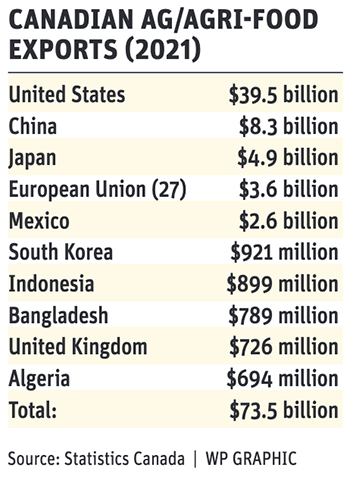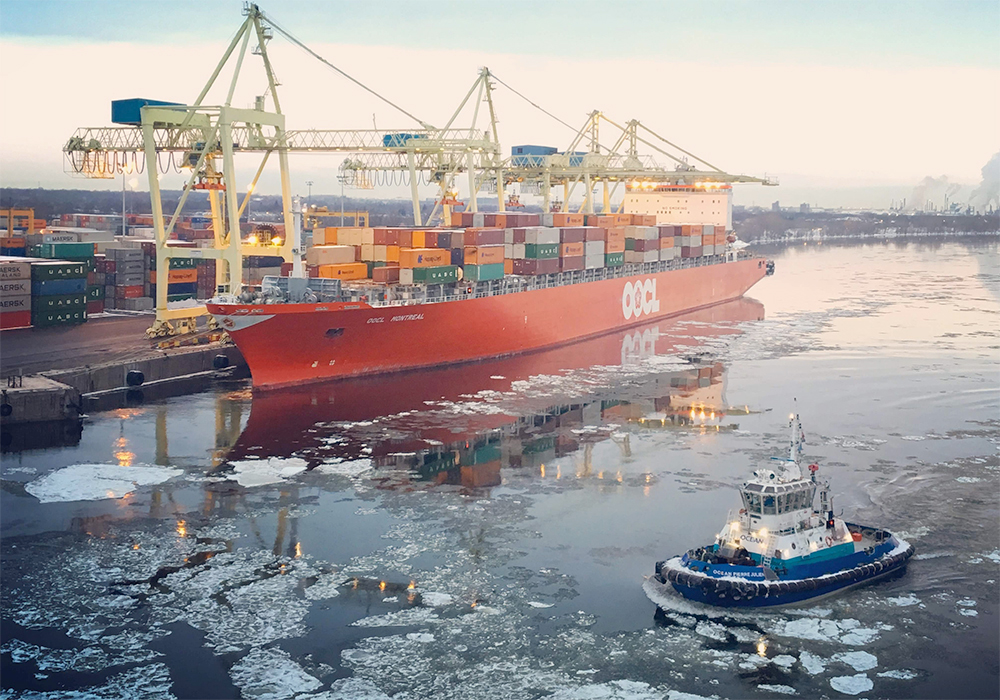It may not happen for years, but a new carbon scheme could impose European standards on Canadian farmers and producers around the globe.
The European Union plan, called the Carbon Border Adjustment Mechanism, entered its first phase of implementation in October.
EU leaders deny it is protectionism.
The plan would mean that other countries must report their greenhouse gas emissions for certain products going to the EU.
Companies outside of the EU will eventually pay a fee to account for those emissions.
“This Sunday, we will begin to implement a ground-breaking new tool that will… extend the same pricing principles… to all carbon-intensive products imported into the EU,” said Paolo Gentiloni, EU commissioner for economy, in late September.
“CBAM will encourage industry worldwide to embrace greener technologies. It will also prevent so-called carbon leakage, or the relocation of production outside our borders to countries with lower environmental standards.”
For now, the CBAM only applies to certain industries — iron/steel, aluminum, fertilizer, electrical energy, hydrogen and cement.
But the EU said it is just the beginning.
“In the future, the scope of CBAM is expected to extend to more sectors,” said a European Union document at www.consilium.europa.eu/en/infographics/fit-for-55-cbam-carbon-border-adjustment-mechanism/.
Canada’s government and industry leaders are paying attention.
Canada is the second largest exporter of fertilizer in the world and number five when it comes to aluminum.
Europe plans to phase in the plan over the next few years, and exporters of the listed commodities will start paying levies in 2026. Reporting of emissions begins next year.
Export Development Canada published a report in June, looking at the effects of the EU’s new policy. EDC said it is a big deal for global trade.
Certain countries will be winners and others will be losers.
“This policy will likely increase exports from carbon-pricing nations around the world, while reducing exports from non-carbon-pricing nations,” EDC said.
“It will impose fees on select imports to account for the greenhouse gas (GHG) emissions released during their production.”
Agricultural exporters in Canada are also watching.
In 2021, Canada exported $3.6 billion worth of agriculture and agri-food products to the EU.
That figure should increase because Canada and Europe have a free trade agreement. Beef and pork producers in Canada say the deal isn’t fair. But it is a free trade agreement, which normally boosts imports and exports between the trading partners.

The Canadian Agri-Food Trade Alliance said the CBAM represents a global trend, where large and powerful countries are using climate change policy to deter imports.
“The danger is the sustainability regulations become non-tariff barriers,” said Michael Harvey, CAFTA executive director.
“It (CBAM) is framed from an environmental perspective, but it has trade-distorting effects.”
The long-term impact on Canadian ag exports is unclear.
If Europe recognizes Canada’s carbon tax, there could be opportunities to expand exports of beef, canola oil, wheat and other agri-foods.
If Europe doesn’t approve of Canada’s carbon tax system, there could be consequences.
For example, exporters of canola seed may have to pay a levy on shipments going to Europe, to ensure that the environmental cost of producing canola in Canada is equivalent to European rapeseed production.
But Export Development Canada said in its report that the European policy will affect global flows of trade.
“For anyone engaged in international trade, it’s vital to understand the implications and opportunities (of CBAM),” EDC said. “(It) is likely to cause noticeable shifts and create opportunities — and setbacks — for other nations.”
















